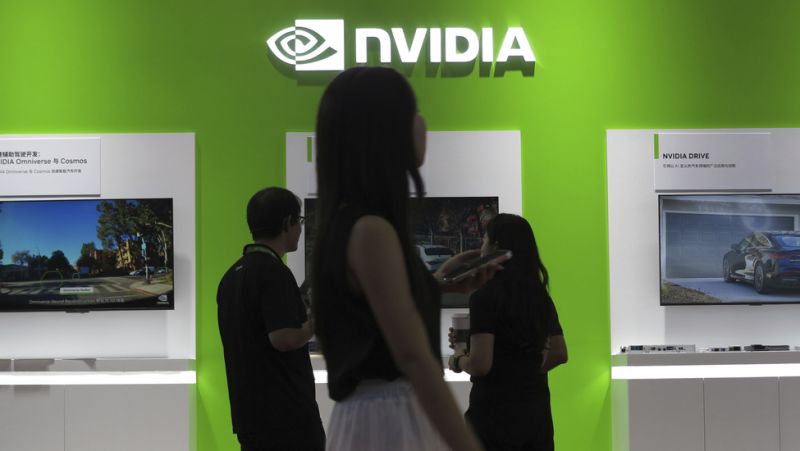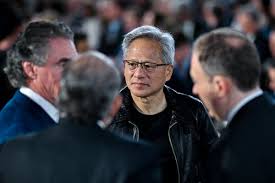In the latest twist of the ongoing saga between tech giants, the US government, and China, Nvidia and AMD have reportedly agreed to pay a significant 15% of their revenues from semiconductor sales to China as part of a deal with the Trump administration. This agreement aims to secure export licenses for Nvidia's H20 chips and AMD's MI308 chips to be sold in China. The Financial Times, New York Times, and Reuters have all confirmed this quid pro quo arrangement, shedding light on the complexity of global trade dynamics.
According to reports, Nvidia CEO Jensen Huang met with President Donald Trump as part of the negotiations surrounding this deal. A spokesperson for Nvidia emphasized the company's commitment to complying with US government regulations concerning global market participation. Despite not having shipped H20 chips to China for some time, Nvidia remains hopeful that export control rules will allow the US to compete and thrive in Chinese and global markets.
The demand for AI chips is skyrocketing, with the potential of this arrangement to generate substantial revenue for the US government. However, uncertainties loom regarding the venture's success as China raises security concerns about Nvidia's H20 chips. A social media account affiliated with Chinese state media has highlighted potential security risks, including the presence of backdoors in the chips, which could compromise their functionality and security.
Nvidia has refuted claims of backdoors in its products, emphasizing its commitment to security and compliance with international standards. The clash of interests between the US and China concerning access to advanced technology underscores the broader trade and tech frictions between the two economic powerhouses. High-end chips like the H20 are at the center of this struggle for technological supremacy as both countries navigate complex negotiations and geopolitical tensions.
The evolving landscape of trade relations between the US and China further complicates matters, with a looming deadline for a trade truce that has implications for various sectors, including technology. Recent shifts in export controls by the White House have influenced Nvidia's decision to resume sales of the H20 chip to China, indicating the strategic role of tech exports in broader trade negotiations.
As the US government tightens controls on advanced technology exports to China, questions arise about the significance of high-bandwidth memory cHBMc chips in the ongoing dispute. Reports suggest that China is pushing for the relaxation of export restrictions on HBM chips as part of upcoming trade negotiations. This highlights the intricate interplay of technological dependencies and national security concerns in the realm of global trade.
The backdrop of these developments underscores the strategic importance of semiconductor sales and export controls in shaping the competitive landscape of the tech industry. As the US, China, and tech companies navigate these complexities, the implications for market dynamics, innovation, and geopolitical power play out on a global stage.
In conclusion, the intertwined interests of governments, tech giants, and shifting trade dynamics underscore the intricate dance of power and influence in the realm of semiconductor sales and export controls. The outcome of these negotiations will not only impact individual companies like Nvidia and AMD but also have far-reaching consequences for the broader tech industry and global trade relations.


